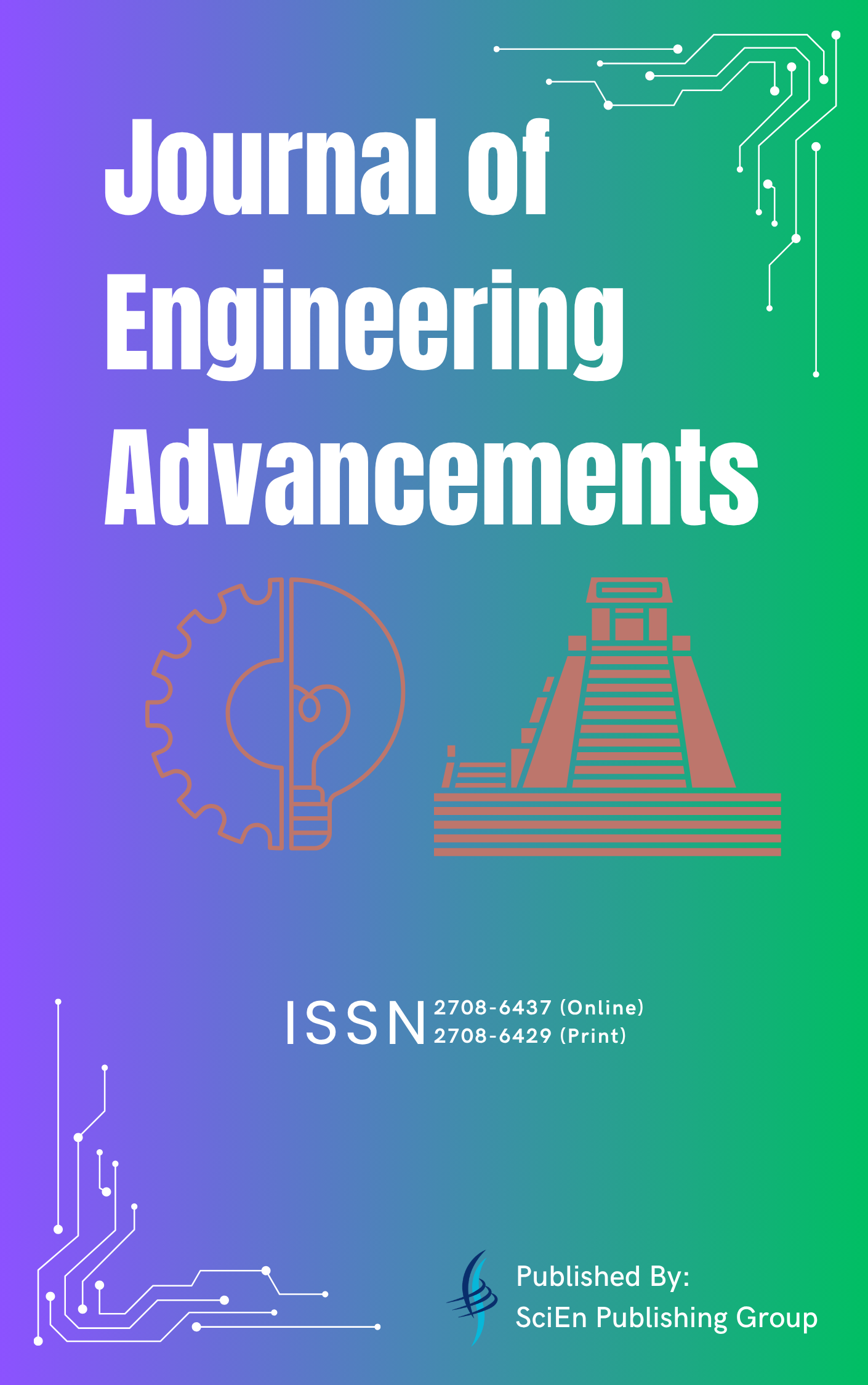Submit Your Paper to the Journal of Engineering Advancements
Important Information
Review Policy
SciEn Conference Series: Engineering practices an editorial review policy. It is the conference organizer's responsibility to conduct the peer review. However, SCS: Engineering accepts only double-blind/single-blind peer reviews. SciEn Publishing Group may request peer review reports at any time from the organizer.
All submitted papers will be evaluated by the SciEn Conference Series team to verify their compliance with the quality standards set by SciEn Publishing Group. This includes assessing adherence to publisher policies, alignment with the journal's scope, and overall manuscript quality. Papers that do not meet these criteria will be reported to the organizer.
Open Access Policy
SciEn Conference Series: Engineering is open access and peer-reviewed collection of high-quality conference proceedings.
User Rights
The authors will retain the copyright of the published paper. The articles published in the SciEn Conference Series: Engineering will be immediately and permanently free for everyone to read, download, copy, and distribute. Permitted reuse is defined by the following user licenses.
All the articles published by this journal are licensed under a Creative Commons Attribution 4.0 International License
Open Access Publication Fee
As an open access publication with no subscription charges, a fee is payable by the conference organizer to cover the costs associated with the publication process, DOI, plagiarism check, preservation of data, etc. This ensures the articles are immediately and permanently free to access.
Contact us to discuss the opportunities through email ([email protected]).
Advertising Policy
The journal advertises upcoming conferences (once an agreement between the conference organizer and the publisher is confirmed) on the website. However, other advertisements will also be displayed on the journal's website that contributes to the revenue of the publisher.
Indexing
The journal is currently indexed in Google Scholar.
Archiving
All papers published in the SciEn Conference Series: Engineering are archived in PKP-PN for long-term preservation. The papers will be available online for a lifetime. Authors can also self-archive all versions (submitted/accepted/published) of the paper in their institutional repositories or any other platform without embargo.
Publication Ethics
SciEn Conference Series: Engineering (SCS: Engineering) is an open access, peer-reviewed, and international journal which is published by SciEn Publishing Group (SciEnPG). We intend to promote open access research and to disseminate knowledge widely through scholarly publishing. SCS: Engineering’s mission is to publish quality conference proceedings in the field of engineering through a rigorous editorial review process while keeping access immediately free to all. SciEnPG is committed to following the highest standard of publication ethics. Publication malpractice is prohibited in all stages of the publication of a manuscript. Although we are not a member of the Committee on Publication Ethics (COPE) yet, we follow the codes of conduct as well as the international standards recognized by the COPE. Therefore, it is obligatory for authors, reviewers, conference organizers, and editors to follow the standards of ethical guidelines and confidentiality at all stages of the publication process.
Authorship and Contributorship
During the submission of a manuscript at a conference, the corresponding author agrees to the term that all the authors have significantly contributed to the manuscript. Inappropriate addition or subtraction of an author is highly discouraged for publication in the SciEn Conference Series: Engineering. It is the corresponding author’s responsibility that all the authors have contributed to the manuscript. Conference organizers are required to follow this policy.
Changes to Authorship
The corresponding author is requested to carefully consider the author's contributions and order of authors before submitting a manuscript. Authorship cannot be changed at any point once the proceedings are submitted to the SCS: Engineering for publication.
Post-Publication Discussions and Corrections
The Journal does not have any option on the website for post-publication discussion however it is encouraged that any comments on published papers should be directly emailed to the editorial office ([email protected]).
Allegations of Research Misconduct
SciEn Conference Series: Engineering takes research misconduct (e.g. plagiarism, data fabrication, citation manipulation, etc.) seriously. Although all the papers are screened for plagiarism checking before publication. However, if potential misconduct occurs, the concerned person should email directly to [email protected] expressing their concern.
Article Retraction
There should be no change in the published articles. However, the articles may be subjected to retraction due to plagiarism, redundant publication, or flawed/fabricated data to uphold the reliability of scientific knowledge. The Editor will initiate the retraction process at the request of the author(s) or any concerned person. A retraction notice will be emailed to the corresponding author, concerned person, and conference organizer including the details of the paper, the reason for the retraction, and who is retracting the article.
Conflicts of Interest
It is the responsibility of the conference organizers to disclose any conflict of interest present in any paper.
Data Sharing and Reproducibility
All authors are requested to strictly follow the specific standards (ASTM, ISO, BS, etc.) during their experiments so that the data can be reproduced.

